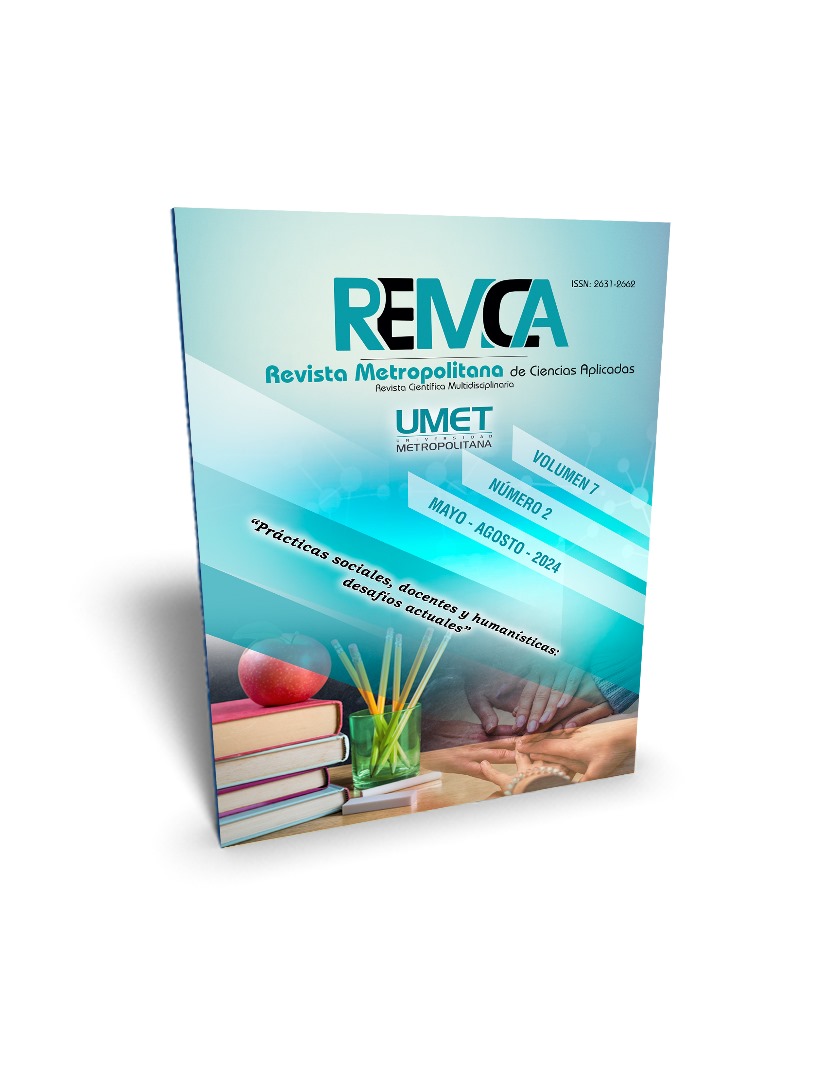Analysis of the impact of tax reforms on Ecuadorian smes: viability, competitiveness and business development
DOI:
https://doi.org/10.62452/ef1bhs66Keywords:
Taxation, income tax, economic and social development, business, fiscal policyAbstract
The study addresses the difficulties faced by Ecuadorian companies in adapting to changes in the tax system, which often generate uncertainty and additional requirements. The objective of this study was to analyze the impact of tax reforms on Ecuadorian SMEs, specifically the transition from RISE to RIMPE, and their effects on the competitiveness and financial stability of these companies. A literature review was conducted, as well as an analysis of secondary data on tax collection and the financial situation of SMEs before and after the implementation of the reforms. The results showed that, although the tax reforms sought to simplify the tax payment process and promote benefits for microenterprises, they also generated additional challenges, such as lack of tax knowledge and difficulty in complying with the new tax obligations. In conclusion, the study highlights the need to design tax policies that promote the economic growth of SMEs without compromising their financial stability, thus guaranteeing their development and competitiveness in the Ecuadorian market.
Downloads
References
Alberca, G., Leiva, P., Aguirre, P., & Jaramillo, F. (2021). Estructura tributaria, impacto en el crecimiento económico del Ecuador: Análisis econométrico del periodo 2010- 2019. Revista Científica y Tecnológica UPSE, 8(2). https://doi.org/10.26423/rctu.v8i2.561
Arroyo, J. (2020). Los modelos de tributación en Latinoamérica y su incidencia en la desigualdad. Revista Científica General José María Córdova, 18(31). https://doi.org/10.21830/19006586.583
Carrera, O., Castro, J., Vargas, V., y Villavicencio, N. (2022). Los tributos en el Ecuador en tiempos de Covid 19. Polo del Conocimiento, 7(7). https://doi.org/10.23857/pc.v7i7.4242
Comisión Económica para América Latina y el Caribe. (2023). Estadísticas tributarias en América Latina y el Caribe (OECD). OECD. https://www.oecd.org/tax/tax-policy/folleto-estadisticas-tributarias-en-america-latina-y-el-caribe.pdf
Colcha, R. (2022). Las reformas tributarias y la ley de régimen tributario en las pymes del Ecuador. (Tesis de maestría). Universidad Regional Autónoma de Los Andes.
Crespo, F. (2022). Las cargas tributarias y su impacto en las pequeñas y medianas empresas constructoras en Cuenca. (Tesis de maestría). Universidad Politécnica Salesiana.
Ecuador. Asamblea Nacional. (2019). Ley Orgánica De Simplificación Y Progresividad Tributaria. Registro Oficial Suplemento 111. https://www.registroficial.gob.ec/index.php/registro-oficial-web/publicaciones/suplementos/item/12369-suplemento-al-registro-oficial-no-111
Espina, A. (2022). Influencia de la educación universitaria en la formación de la cultura tributaria del contador público. Revista Científica Visión de Futuro, 26(1). https://www.redalyc.org/journal/3579/357967638001/html/
Espinosa, N. (2023). Análisis de los regímenes simplificados y su impacto en la recaudación del impuesto a la renta en Ecuador. (Tesis de licenciatura). Universidad Técnica de Ambato.
Galarza, J., Ordóñez, J., & Zamora, E. (2022). Importancia de las estrategias en las obligaciones tributarias frente a la emergencia sanitaria Covid-19 en Pymes de Cuenca, Ecuador. Religación: Revista de Ciencias Sociales y Humanidades, 7(31). https://dialnet.unirioja.es/descarga/articulo/8422873.pdf
Gherghina, C., Botezatu, A., Hosszu, A., & Simionescu, L. (2020). Small and Medium-Sized Enterprises (SMEs): The Engine of Economic Growth through Investments and Innovation. Sustainability, 12(1). https://doi.org/10.3390/su12010347
Halim, A., & Rahman, M. (2022). The effect of taxation on sustainable development goals: Evidence from emerging countries. Heliyon, 8(9).
Martelo, M., Quintero, D., & Vieira, J. (2023). Innovación y Resiliencia: La Pyme Frente a la Crisis Provocada por el Covid-19. Una Revisión Narrativa de la Literatura. Economía y Negocios, 14(2). https://doi.org/10.29019/eyn.v14i2.1135
Mogrovejo, O., Campoverde, F., y Palacios, E. (2023). Análisis de las reformas tributarias en el pago del Impuesto a la Renta para personas naturales bajo relación de dependencia. Bolentín de Coyuntura, 36. https://doi.org/10.31243/bcoyu.36.2023.1958
Pinos, J. (2022). Reforma Tributaria En El Ecuador Sobre El Régimen Simplificado Para Emprendedores Y Negocios Populares (RIMPE), año 2022. (Tesis de maestría). Universidad Tecnológica Israel.
Quituisaca, E., & Torres, A. (2023). Reformas tributarias en Ecuador. Impacto en determinación del Impuesto a la Renta, Pymes sector textil. MQRInvestigar, 7(2). https://doi.org/10.56048/MQR20225.7.2.2023.851-875
Ruano, C., & Lunavictoria, S. (2022). Evolución tributaria y su incidencia en los resultados integrales. AlfaPublicaciones, 4(1). https://doi.org/10.33262/ap.v4i1.196
Urdaneta, A., Crespo, M., Solano, J., & Borgucci, E. (2019). La dimensión del sector público en el Ecuador y su impacto a través de la política tributaria en la competitividad de las Pymes. INNOVA Research Journal, 4(3), 217-238. https://revistas.uide.edu.ec/index.php/innova/article/view/1221
Viteri, K., & Vergara, N. (2023). Análisis del impacto tributario de pequeñas y medianas empresas del sector agrícola en la provincia del Guayas 2020. Polo del Conocimiento: Revista científico - profesional, 8(1), 1077-1093. https://polodelconocimiento.com/ojs/index.php/es/article/view/5120
Zamora, L. (2020). Impacto del sistema tributario ecuatoriano en las microempresas | 593 Digital Publisher CEIT. https://www.593dp.com/index.php/593_Digital_Publisher/article/view/239
Downloads
Published
Issue
Section
License
Copyright (c) 2024 Lizbeth Tamara Lafebre-Tenén, Verónica Paulina Moreno-Narváez (Autor/a)

This work is licensed under a Creative Commons Attribution-NonCommercial-ShareAlike 4.0 International License.
Authors who publish in Revista Metropolitana de Ciencias Aplicadas (REMCA), agree to the following terms:
1. Copyright
Authors retain unrestricted copyright to their work. Authors grant the journal the right of first publication. To this end, they assign the journal non-exclusive exploitation rights (reproduction, distribution, public communication, and transformation). Authors may enter into additional agreements for the non-exclusive distribution of the version of the work published in the journal, provided that acknowledgment of its initial publication in this journal is given.
© The authors.
2. License
The articles are published in the journal under the Creative Commons Attribution-NonCommercial-ShareAlike 4.0 International License (CC BY-NC-SA 4.0). The terms can be found at: https://creativecommons.org/licenses/by-nc-sa/4.0/deed.en
This license allows:
- Sharing: Copying and redistributing the material in any medium or format.
- Adapting: Remixing, transforming, and building upon the material.
Under the following terms:
- Attribution: You must give appropriate credit, provide a link to the license, and indicate if any changes were made. You may do this in any reasonable manner, but not in any way that suggests the licensor endorses or sponsors your use.
- NonCommercial: You may not use the material for commercial purposes.
- ShareAlike: If you remix, transform, or build upon the material, you must distribute your creation under the same license as the original work.
There are no additional restrictions. You may not apply legal terms or technological measures that legally restrict others from doing anything the license permits.




